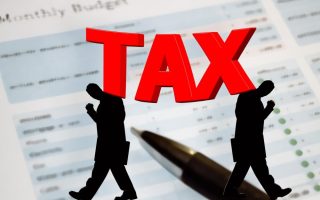Property taxes are one of the most persistent expenses retirees face, and they can be a heavy burden on fixed incomes. Unlike mortgages, which eventually end, property taxes continue indefinitely and often rise with home values. For seniors who want to age in place, these costs can threaten financial stability. Fortunately, many states and municipalities offer tax breaks specifically for older homeowners. The problem is that these programs are often buried in fine print, poorly advertised, or difficult to navigate. As a result, thousands of seniors miss out on the savings they deserve.
Break #1: Homestead Exemptions
Homestead exemptions reduce the taxable value of a primary residence, lowering annual property tax bills. Many states offer enhanced exemptions for seniors, sometimes doubling the benefit compared to younger homeowners. This can save hundreds or even thousands of dollars each year. Seniors must usually apply through their local assessor’s office, but once approved, the exemption often renews automatically. Missing this opportunity means paying more than necessary for the same home.
Break #2: Senior Freeze Programs
Some states and counties allow seniors to “freeze” property taxes at a certain level, preventing increases as home values rise. This is especially valuable in areas with rapidly appreciating real estate. Seniors who qualify can lock in predictable payments, protecting them from inflation and market fluctuations. Eligibility often depends on age and income, but the savings can be substantial. Without this program, retirees risk being priced out of their own neighborhoods.
Break #3: Circuit Breaker Credits
Circuit breaker programs provide tax credits when property taxes exceed a certain percentage of household income. These credits are designed to prevent seniors from being overwhelmed by taxes relative to their earnings. The benefit is often applied directly to tax bills or refunded after filing. Seniors with modest incomes stand to gain the most, but many don’t realize the program exists. Checking eligibility can uncover relief that makes housing more affordable.
Break #4: Deferral Programs
Property tax deferral programs allow seniors to postpone payments until the home is sold or transferred. This option provides immediate cash flow relief, though taxes and interest eventually come due. For retirees struggling with monthly expenses, deferrals can be a lifeline. They allow seniors to remain in their homes without sacrificing essentials like food or healthcare. However, deferrals must be carefully considered, as they reduce equity over time.
Break #5: Disability-Linked Exemptions
Seniors with disabilities may qualify for additional exemptions or credits beyond age-based programs. These benefits recognize the financial strain of medical costs and reduced earning potential. They can significantly lower property tax bills, especially when combined with other senior programs. Unfortunately, many disabled seniors are unaware of these options or assume they don’t qualify. Applying can unlock meaningful savings that ease financial stress.
Break #6: Local Relief Programs
Beyond state-level initiatives, many cities and counties offer their own property tax relief programs. These may include partial exemptions, rebates, or targeted assistance for low-income seniors. Because they vary widely, seniors must research local options carefully. Community organizations and councils on aging often provide guidance. Overlooking local programs means missing out on benefits tailored to specific communities.
Break #7: Veterans’ Exemptions
Senior veterans often qualify for special property tax exemptions, particularly if they have service-related disabilities. These programs honor military service while easing financial burdens in retirement. Benefits can range from partial reductions to complete exemptions, depending on state laws. Veterans should contact local assessors or veterans’ affairs offices to explore eligibility. Missing these benefits is a common mistake that can cost thousands annually.
How to Claim These Breaks
The complexity of property tax systems is a major barrier. Rules vary by state, county, and even municipality, making it difficult to know what applies. Applications often require documentation, deadlines, and annual renewals. Seniors who are unaware or overwhelmed may simply pay full taxes without realizing relief is available. Education and outreach are critical to ensure retirees access the benefits they’ve earned.
Seniors should start by contacting their local assessor’s office to ask about age-based exemptions. State revenue departments often publish guides to available programs. Nonprofits and councils on aging can also provide assistance with applications. Keeping records of income, disability status, and veteran service is essential for proving eligibility. Persistence pays off, as many programs require annual reapplication.
Relief Is Out There
Property taxes don’t have to drain retirement savings. With homestead exemptions, freezes, credits, deferrals, and veteran benefits, seniors have multiple paths to relief. The challenge is knowing where to look and taking the time to apply.
Have you claimed a property tax break? Share your experience—it could help others save money.
You May Also Like…

Teri Monroe started her career in communications working for local government and nonprofits. Today, she is a freelance finance and lifestyle writer and small business owner. In her spare time, she loves golfing with her husband, taking her dog Milo on long walks, and playing pickleball with friends.
Read the full article here






















